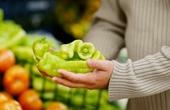Safe consumption of nitrates

Consumption of green vegetables ( salad, parsley, dill, etc.) rarely exceeds 100 grams per day, and most often is about 50 g. Hence it follows that with one portion you can get less than a third ofsafe daily dose of nitrates.
Beetroot is known to be consumed only in boiled form. Cooking and cleaning it lead to the loss of half the nitrates. In public catering is recommended the size of one serving of boiled beet in 125 g, therefore, with beets can get 100 mg of nitrates.
Potatoes and cabbage in boiled form are consumed in portions of 300 grams. If we take into account losses of nitrates during cleaning and during cooking, then with one portion of these products about 60 mg of nitrates can be consumed.
Similar calculations for other vegetables and other types of cooking allow us to conclude that in the case of the usual rational consumption of vegetables in fresh or cooked processed form, it is almost impossible to exceed the safe daily dose of nitrates with food. In addition, the calculations also show that the average daily intake of nitrates with basic types of root crops, vegetables, melons and fruits, taking into account the actual nutrition data, as well as the actual content of nitrates in food, does not exceed 100 mg. At the same time, a third of the nitrates come in beet, a slightly smaller share - in cabbage and potatoes, while the rest of vegetables and fruits account for less than 10%.
Violation of the same principles of rational nutrition, for example, eating only raw vegetables, can lead to a significant excess of the safe dose of nitrate intake into the body almost 2 times. Also, you can not constantly eat( and even 3 times a day) the same type of vegetables, for example beetroot. Limiting the consumption of fruits and vegetables in the diet in order to reduce the risk of nitrate poisoning is inappropriate, since in the long run this can lead to a lack of necessary vitamins.
Materials used:
Shilov VN, Mits'yo VP"Healthy food"
